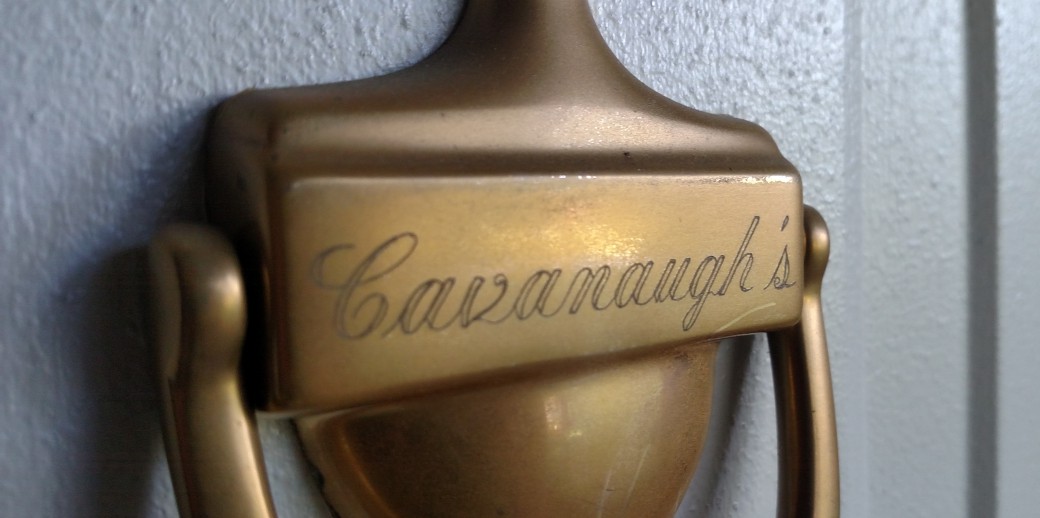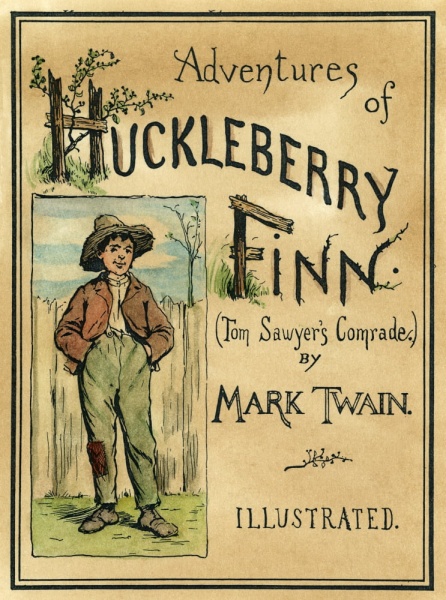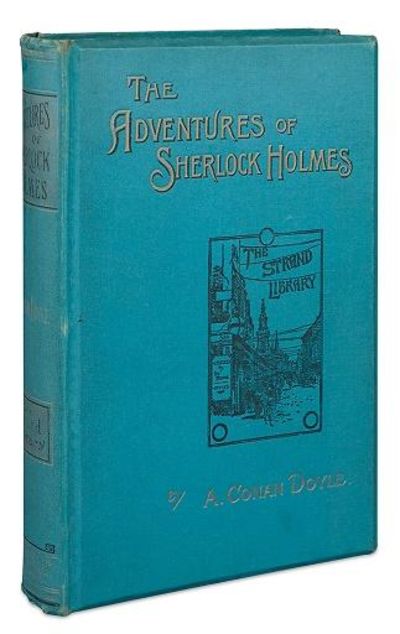JP’s Book Report – April, 2024 Edition
I have seen a slowdown in miles, so there has also been a slowdown in the consumption of audiobooks. The good news is that a reduction in quantity to five titles allows for a little more discussion of some of them.
First up is The Forgotten Man, Amity Shlaes (2007). This is a fascinating and rewarding read about many causes of the Great Depression of the 1930’s. So much writing on this topic can be summed up thus: The Depression was caused by Wall Street speculators in 1929, and FDR rescued us. As one who studied economics in college, law after that, and who grew up in a household that was never under the cult of FDR, that line has always been extremely unsatisfying.
I remembered Shlaes from her days writing for the Wall Street Journal, and found her take to be both non-partisan and one that makes complete sense. She stresses that the 1920’s had been a decade of genuine growth and prosperity, and that the Wall Street crash of October, 1929 was a significant, but ordinary correction in the stock market. What was different from prior sharp recessions (such as one in 1920-21) was two successive Presidential administrations that made different mistakes, but with a shared result of making things much deeper and much longer than they should have been.
Herbert Hoover was a mining engineer by training. He was nicknamed “Wonder Boy” by Calvin Coolidge, who was not a fan of his fellow Republican. Hoover had never met a problem that he could not manage into submission – until this one. He managed gold flows in a way that sharply deflated the currency, which caused price collapses, and followed it up with tax rate increases and a major tariff that all worked together to hammer both domestic business and foreign trade.
His successor, Franklin D. Roosevelt, was of the “Don’t just stand there, DO SOMETHING” school of government who spewed forth a dizzying array of new government programs that spent, controlled, cajoled and blustered. Besides the fact that many of them turned out to be unconstitutional (though not as many of them as should have been so declared), Roosevelt’s frenetic government created so much uncertainty (in the best cases) or harm (in the worst) that the economy continued to cower for the rest of the decade.
Next up: The Magnificent Ambersons, Booth Tarkington (1918). Tarkington won his first Pulitzer Prize in 1919 for this book. It is a story about a wealthy family (the Ambersons) that was at the top of the social and financial heap of the 1870’s, and set in a fictionalized version of Indianapolis, Indiana. The family produced a spoiled, entitled, and thoroughly dislikable single grandchild, George Amberson Minafer. The decades that follow see the slow erosion of the old family’s wealth and influence, though young George has trouble understanding the extent and even more trouble coming to terms with it.
Booth Tarkington, a native son of Indianapolis, fell out of favor as the literary set adopted a younger, harder-edged set of authors as those to be followed. However, I found his writing to be a delight, with much good-humored wit in his observations. As one who has lived in Tarkington’s city for the past four decades, the phenomena observed by the author have continued unabated, with new replacing old in a continual cycle, forcing the reluctant recognition that nothing is permanent.
I had read The Adventures of Huckleberry Finn (Mark Twain, 1885) early in my high school years but remembered almost none of it. It seems that this book was always controversial. At the beginning, literary-types dismissed Twain’s writing as too crude to be taken seriously. In later years, the controversies have involved the treatment of race and the frequent use of what we now call “the N word”. Even now, critics cannot decide whether the book was a literary spear aimed at racial views of Twain’s time and place, or whether it was a work unable to rise above those views. I cannot decide either, and think that maybe both things are in play. I can say that the book very effectively takes the reader back to a time and place that most of us would be reluctant to inhabit today.
I will say, however, that in the title character, Twain creates a young country-boy who is backwards in formal learning and social rules, but who is wise beyond his years in his understanding of the people around him in pre-Civil War Missouri as he does his best to help an escaped slave (Jim) make it to freedom. Young Huck struggles with his conscience over this – the world tells him that helping an escaped slave is wrong, but the boy rationalizes that he was never much good at doing the right thing. I found myself rooting for Huck to see the rightness of what he was doing, and wonder if this wasn’t Twain’s purpose all along.
Huckleberry Finn was written with extensive use of dialect, so it was a challenge finding an audiobook that captures the verbal flavors that Twain tried to convey. I started two or three versions before I found one that worked for me, and even then it was not tremendously satisfying on this score. This may be a case where the printed page has the advantage over an audio version, at least for those of us who have grown up around some versions of those dialects.
I heard about The Mysterious Case of Rudolph Diesel, (Douglas Brunt, 2023) on a podcast. This book is part biography of the inventor of the Diesel engine and part mystery story that examines the inventor’s disappearance from a ship crossing the English Channel on September 29, 1913. I found this one to be both interesting and flawed. I was not all that familiar with the developmental history of the Diesel engine, and knew virtually nothing about the life of its designer. On these scores, the book did well. Diesel was born in 1858 to a Bavarian family who had relocated to Paris. He was aided by an uncle who staked him to a University education in engineering, at which he excelled in thermodynamics.
However, the author’s grasp on technical aspects of engines in general (and the Diesel engine in particular) was tenuous. In particular, a thread of the story in which the Diesel engine (which could burn fuels other than petroleum) was a major threat to Rockefeller’s Standard Oil is underdeveloped and overblown. Brunt makes up for this shortcoming with a good analysis of how the Diesel engine revolutionized shipping in both commercial and military applications, and how it was a necessary precursor to the submarine in the years leading to World War I. The book concludes by making a case that Diesel engineered his own disappearance to escape the German Kaiser’s war machine and to secretly aid the faltering development of submarine engines in Britain.
The one mystery the author failed to solve was why the Diesel engine took so long to see significant development in America. After an early round of patents in the 1890’s, the inventor licensed the technology to several firms in different areas of Europe and to one in America – a company created by Adolphus Busch, the owner of the St. Louis brewery which still bears his name. But despite great strides made by other licensees (the Nobel family in Russia, as well as companies in Switzerland and Germany) in the ten to fifteen years thereafter, it seems that the Busch companies failed to make much of a mark. It would have been interesting to find out why.
I concluded the five titles from the past month with a classic bit of detective fiction in The Adventures of Sherlock Holmes, Arthur Conan Doyle, 1892. This book was made from a collection of short stories which originally appeared in a monthly magazine, and followed the publication of two Holmes novels (A Study in Scarlet and The Sign Of The Four). Almost all of my previous exposure to Sherlock Holmes was either the series of 1930’s films which started Basil Rathbone as the detective and Nigel Bruce as his sidekick, Dr. Watson or else a fairly recent televised series in which Benedict Cumberbatch was Holmes. The original stories are an improvement for me.
Doyle’s Watson is the narrator in these stories. He is not the dullard depicted for comic effect by Nigel Bruce in the old film series, but a man of normal abilities who is drawn to the intense light of the brilliant Holmes. Holmes, in turn, is written as a warmer and more human character (though no less brilliant or eccentric) than he has been depicted in film. Each of the mysteries in the book was an enjoyable dive into the genre, where the solution to the mystery is only revealed at the end.
Thus ends what turned out to be a deep immersion in the period from the Civil War to World War I, with the sole outlier taking us only into the 1930’s. The education of JPC continues.






All sound great, although as a resident of Twain’s hometown of Hannibal for five years, Huckleberry Finn is the one in which I am most familiar.
To me, Twain always seemed to be subtle yet inescapable in his skewering of things. HF is full of skewering of what was, at the time of the book’s writing, conventional wisdom particularly when it comes to certain subsets of the population, such as Huck’s father and the two drunkards who hitch onto Huck’s raft. Twain presents Jim as being both superstitious and thick, although Jim shares a fair amount of Huck’s general wisdom.
Perhaps part of my conclusion is having lived in Hannibal and having multiple times visited the Mark Twain Museum there (as well as the cave featured in Tom Sawyer). The museum has features about the people who inspired the various Twain characters in the Tom Sawyer and Huck Finn features; it is very insightful into what appears to be Twain’s intent.
The only part of Huck Finn that seemed a disappointment was Tom Sawyer popping up toward the end. I have heard that Twain was being pressured (from whatever source) to finish the book and he punted. Whether true or not, I don’t know.
LikeLiked by 1 person
It is funny how living in an area can attune a person to writers from there, even from long ago. Your last comment makes a lot of sense – I found it a real stretch when Tom Sawyer enters the plot again near the end. We all know how a deadline can force making stretches like that.
LikeLike
That’s a good selection for this month. Although the depression, as well as it’s causes and eventual remedies were global it’s interesting to consider why the US fell harder and took longer to get up. Offhand the existence of the Blue Ridge Parkway is in itself justification for FDR’s course of action, but my bias leans towards motorcycles and camping.
I read both Tom Sawyer and Huckleberry Finn as a child, as I dimly recall I disliked Tom Sawyer (both the book and the character) but felt more kinship with Finn.
The Diesel book sounds interesting, if undercooked. Good Lord I hated thermodynamics in engineering school, I had to repeat Thermo II AND Thermo III, and thankfully never had anything to do with it in my career.
LikeLiked by 1 person
I found myself disliking Tom Sawyer too – I think those of us who think in more methodical terms will chafe a bit at Tom’s fanciful, complicated ways of doing something (and fall right in with Huck’s direct and simple ways).
The Diesel story really was interesting – I had never realized (or thought about) the compelling case for Diesel engines displacing steam in ships and trains. And now the submarine would really have been impossible without it. Also, Kaiser Wilhelm was a real nut case. The bio set of Theodore Roosevelt spent some time on how Roosevelt had to get tough with Germany to keep them from forcing their way into some new Central American colonies under the guise of their status as creditors. Roosevelt sent warships to dissuade the Germans from further adventures on the American continent.
LikeLike
Good morning. Five or so years ago I read A Study In Scarlet. In it, Doyle first introduced the Holmes and Watson characters. The book was much better, and far more interesting, than I had expected. Mormons, believe it or not, are part of the plot.
LikeLiked by 1 person
I would like to read that one. I, too was surprised at how much better I liked the book than the screen adaptations I have seen.
LikeLiked by 1 person
I have read Huckleberry Finn several times and enjoy it. I think it was Twain’s poke at racial inequality if you put the man in his times. It’s a big deal and a very emotional moment when he has Huck decide that, even if he is going to hell for helping Jim, he’s going to do it.
I’ve read the Sherlock Holmes stories and books several times as well and you are right about Watson.
LikeLiked by 2 people
I read Huckleberry Finn for the first time in American literature class fifty years ago. I also read it to my kids when they were young. I recently picked it up again to see if it was as good as I remembered, and it was (is). What a great story, so wonderfully told. I love that moment when Huck decides to help Jim escape even if it means his own damnation. Greater love hath no man.
LikeLiked by 1 person
I love being right. 🙂 And both were better reads than I expected.
LikeLiked by 1 person
The Great Depression is an interesting topic. So much of what is accepted as conventional wisdom is flat-out wrong – starting with the claim that Herbert Hoover slavishly followed a policy of strict laissez-faire while the economy slid into ruin. Shlae’s book on Calvin Coolidge is another excellent read, and gives a clear portrait of both her subject and the Roaring 20s.
LikeLiked by 1 person
A lot of interesting reads. You found some old books. The Diesel book and The Magnificent Amberson’s sounded good. Got to love Sherlock Holmes!
LikeLiked by 1 person
I have decided that it is a good idea to let the passage of several decades do the work for me in sorting the good books from the others. I read some more modern stuff, but have so far avoided the really fresh titles.
LikeLiked by 1 person
Agree, I think the older works are well written versus more modern books.
LikeLiked by 1 person
I also read “The Adventures of Huckleberry Finn” in high school and had to analyze it, then write a book report on it. I found it interesting that you tried several audio books with different dialects but decided this book was better read than listened to. I always liked Mark Twain’s witticisms and his many quotes were snarky before that term became popular. I’m sorry to say I’ve not read any of the other books you profiled this week. “The Forgotten Man” sounds interesting. I enjoyed reading “The Grapes of Wrath” about the Depression era, also the subject of a book report back in the day.
LikeLiked by 1 person
I remember reading The Grapes Of Wrath in high school. I also remember liking Steinbeck better than I liked Hemingway or Faulkner, the two other American authors of the period that were popular with my English teachers.
LikeLike
I liked Steinbeck too JP and found it easier to understand and an enjoyable read. My favorite book by Steinbeck was “The Red Pony” which I read as a youngster, though I remember it was sad. As a literature minor, I had to reach way too many books and analyze every part of them, until it took the joy out of reading a book to enjoy it.
LikeLiked by 1 person
Sherlock Holmes – I have the book and have read it several times over the years!
LikeLiked by 1 person
This one would be a great one to own.
LikeLiked by 1 person
I enjoyed the post, the comments, and remembering some good books and authors.
LikeLiked by 1 person
Happy to be of service!
LikeLike
I have to say, that until I moved to Indianapolis, Booth Tarkington was way off my radar. I used to even not bother to watch the film when it was on late night TV. Might be time to try it out after I finish my current read.
LikeLiked by 1 person
For some reason, I don’t think I have ever watched the Orson Welles movie made from the book, but would like to do so now. As for the book, I found that I really enjoyed Tarkington’s prose. He can be wickedly funny, like early on when he makes fun of the passing fads in facial hair, clothing styles or in the kinds of furniture found in peoples’ houses.
LikeLike